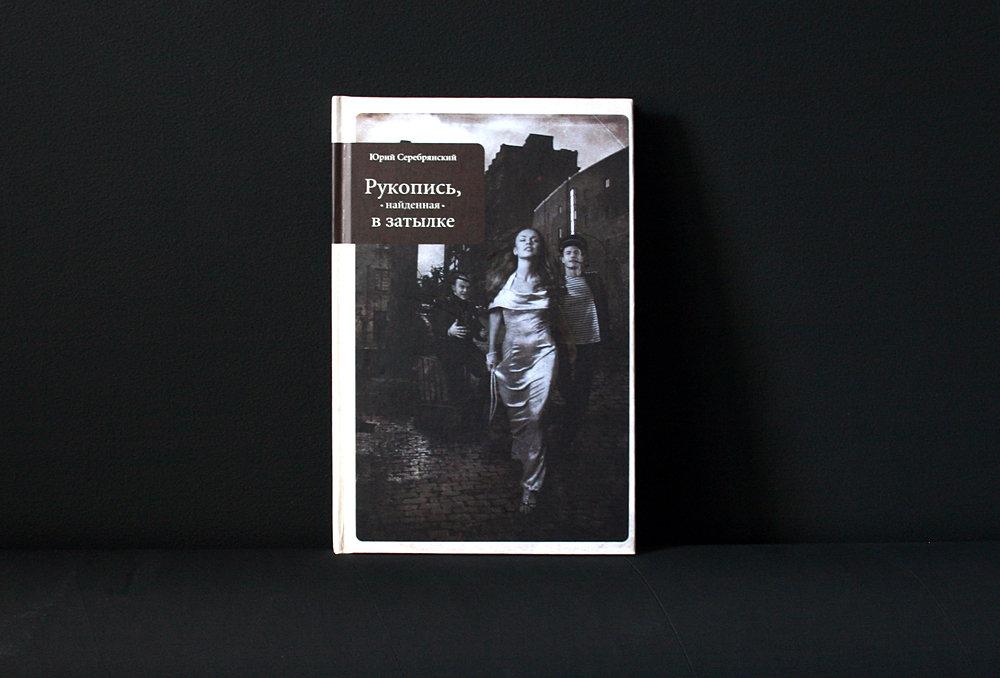
«Manuscript found in the back of the head», poetry, «СаГа», 2010 год. Desigh and illustrations by Артем Калюжный.
About: Editor Pavel Bannikov. Poems appeared in Vozdukh literary magazine, Novaya Yunost etc.
Poems translated into Kazakh by Anuar Duysenbinov — «Литературный портал»
Read / Buy: Read on Bookmate Download PDF
Review / Press:
“Serebriansky has wonderful cycle of poems about Alma-Ata: ‘The City that Grew to be a Glass Man’” — Yevgeniy Abdullayev Октябрь, номер 12, 2011
“Thin, almost watercolor views of Alma-Ata in the 80s, seen through a child’s eyes” — Yevgeniy Abdullayev , Новый Мир, номер 12, 2015
Review in журнале «Эксперт Казахстан»
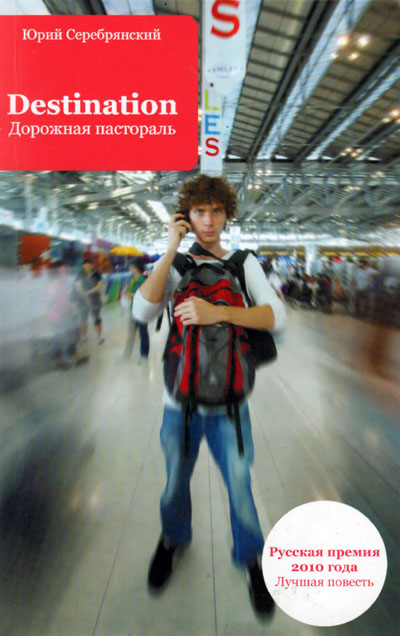
«Destination. Road pastoral», novel, «СаГа», 2011.
Design by Artyom Kalyuzhny. Cover photo by Alexandr Safronov.
About:
“The traveler can feel loneliness as the core of existence like no one else” — Olga Vlasenko, «Эксперт Казахстан».
Editor Leonid Bakhnov. Foreword by Oleg Boretsky. Novel awarded by Russian «Russkaya premia» in 2010 as a best short prose.
Read / Buy:
Read an excerpt (Eng) in Iowa magazine. Translated by Anton Platonov.
Read in Druzhba narodov literary magazine (Rus), номер 8, 2010
Read (Kaz) on Bookmate Destination.Жол пасторалы.
Критика / Пресса:
“Destination’s story is a reflection of the trap that the generation of thirty-year-old writers fell into. This question is rarely raised, but the drama is that the writer lives and writes geographically in Kazakhstan, but the main interest in his work comes from Russia. They seek and publish authors. This gap “pushes” the writer into the Russian literary space.” Pavel Bannikov
“Destination is a continuation of the nomadic culture of the Kazakhs, who did not take root in one place and were always in motion. The protagonist constantly changes places. But if nomads used to look for new pastures for cattle, now we are in search of “spiritual pastures”. Russians are settled. If we are eagles, then they are oaks. Therefore, Kazakh modern literature is more like Western literature, where writers had the experience of visiting colonized countries.”
Ilya Odegov
Review in Эксперт Казахстан
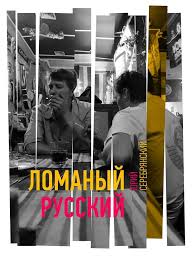
«Broken Russian», a book of poetry, «Ikitap», 2015.
Design and cover photo by Artyom Kalyuzhny.
About:
“For the hero/heroes of “Broken Russian”, being on the border of cultures is common for their life and foundation of the world. What can be done with such a hero and how can we understand him, what can he consider his own? Who is a modern Russian outside of Russia? And what if he is a special Russian Soviet, and quite possibly not even Russian (ethnically), but Russian-speaking (Russian by profession, as Sergey Dovlatov said)? This opposition has recently made sense in connection with the ever-greater distance between Russian and Russian writers outside Russian reality with different self-identifications.”
Editor Pavel Bannikov
Poems appeared in Novaya Yunost, Znamya, Novaya realnost, Literratura magazines.
Read / Buy: Read on Bookmate
Review / Press:
“This is the second book of Serebriansky’s poems, and in there is a difference with his first one “Manuscript Found in the back of the head”, 2010). The subject of his research (both in poetic creativity and in prose) is more clearly manifested – a man outside his linguistic, outside his cultural element.” — Pavel Bannikov, «Novy Mir» magazine номер 12, 2015

«Kazakhstani Fairy Tales», «Aruna», 2017.
About: billingual book in Russian and Kazakh languales. Illustrated by kazakhstani artist Vyacheslav Luy-Ko.
Kazakhstani Fairy Tales recognizes as the best billingual book for young audience of Silk Road book fair in 2017.
In Kazakhstani Fairy Tales (Rus. Казахстанскиесказки), Yuri Serebryansky, a Kazakhstani writer who writes in Russian and is of Polish heritage, presents stories and fables set in different geographical locations throughout Kazakhstan. The adjective “Kazakhstani” refers to multi-ethnic Kazakhstan as a whole, while “Kazakh” refers to the specific ethnic group. In contrast to ethnic Kazakh folklore and fairy tales (which have a long, rich literary and oral history), Serebryansky’s stories are new 21st century creations by the author, which are inspired by folkloric stylistics and contemporary multi-cultural Kazakhstan.
Sarah McEleney, translator’s foreword.
“Kazakhstani Fairy Tales” paradoxically combines universality and concreteness. The stories have the flavor and aroma of the Kazakh land as the best place in the world. Through the details, and details characteristic of the history of this land, the Universe itself looks at us.
Olga Baturina
Read / Buy:
Read two stories (Eng) in Barzakh magazine Translated by Sarah McEleney.
Read (German) in ZOiS Report 1/2019
Buy a book on Flip.kz
Buy a book on издательства «Аруна»
Review / Press:
“These fairy tales are not quite fairy tales. This is philosophical reality in which everything looks familiar, but becomes magical and unpredictable: Kok Tobe castle is built by knights, an Almaty artist rides a turtle (you will immediately recognize it), the Aral Sea goes in search of its ocean father, and the shepherd’s skullcap turns into a house for the whole family.” — KTK
Zentrum für Osteuropa- und internationale Studien (ZOiS)„Kasachstanische Märchen“ – ein literarisches Identitätsangebot für alle Kasachstaner*innen
DAZ Deutsche Allgemeine Zeitung Serebrjanskijs Märchenwald
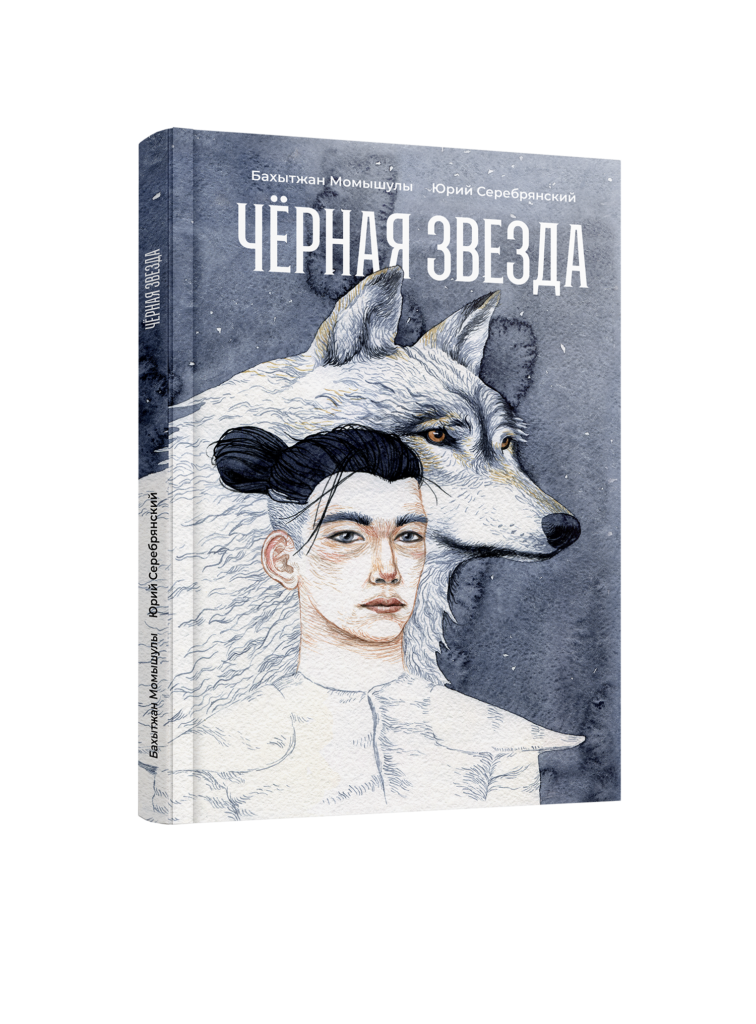
«Black Star», «Knizhniy Klub», 2019.
About: Available in Russian and Kazakh languales. Illustrated by kazakhstani artist Assol Sas.
Black Star is my first book co-written in collaboration with a wonderful writer,but, unfortunately, I did not have the chance to ask him any questions. All of my questions had to be asked to his novels and stories alone, in which I discovered an intelligent and profound writer. Bakhytzhan Momyshuly passed away in 2012, leaving behind the beginnings of a great plan – the fairy tale novel Black Star, the typed manuscript of which I received in 2016, when Momyshuly’s family approached me about finishing the story. The reason was my Kazakhstani Fairy Tales, and Yerzhan Momyshuly, the writer’s son, said then that he felt the need to give Black Star to me precisely after reading “the tales”.
Review / Press:
Read / Buy:
Serebriansky’s fantasy novel Black Star (co-authored with Bakhytzhan Momyshuly, who died in 2012) was published in Russian and Kazakh simultaneously, although not as a single volume. In an interview, Serebryansky explained that publishing his works in both languages at the same time is “a genuine opportunity to safeguard my survival as a writer in Kazakhstan”. — Review by Nina Friess, ZOiS, Germany
Buy a book on Flip.kz
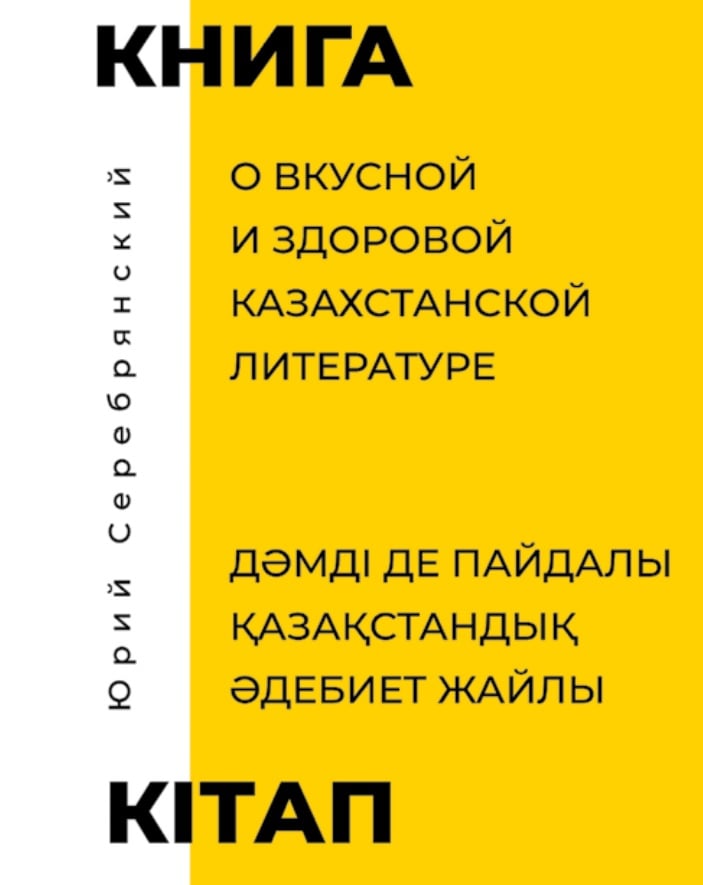
«The Book of Tasty and Healthy Kazakhstani Literature», «Open Society Institute», 2020.
About: Available in Russian and Kazakh languales. Illustrated by Artyom Kalyuzhny.
Read / Buy: Available for free download
Review / Press: IWP Periscope interview «I expect my new book, titled Книга о вкусной и здоровой казахстанской литературе [“The Book of Tasty and Healthy Kazakhstani Literature”], to be released in the middle of December [2020]. Its goal isn’t to give an exhaustive account of the situation in Kazakhstani literature since 1991, i.e., during the period of independence. The book is based on interviews with the winners of the literary contests organized during this period by the Open Society Institute in Kazakhstan, but in fact most contemporary Kazakhstani authors were involved, and can find their name in the book. I was surprised to learn that the literary contest organized in 1997 by the Soros Foundation-Kazakhstan was the very first literary prize in the newly independent state».
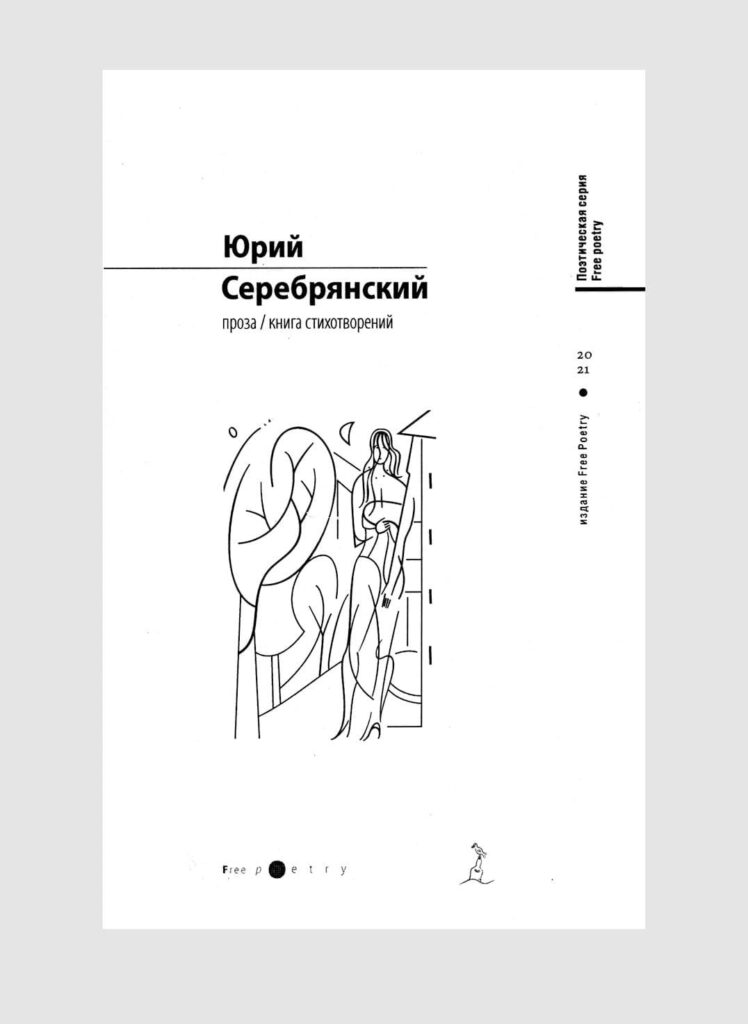
«Prose», Poetry collection, Free Poetry publishing, 2021, Russia.
About: Poetry collection titled «Prose» released by Free Poetry Russian publishing project. Publisher and art-work Igor Ulangin, Editor-compiler Mariya Malinovskaya, introduction word by Krzysztof D. Szatrawski
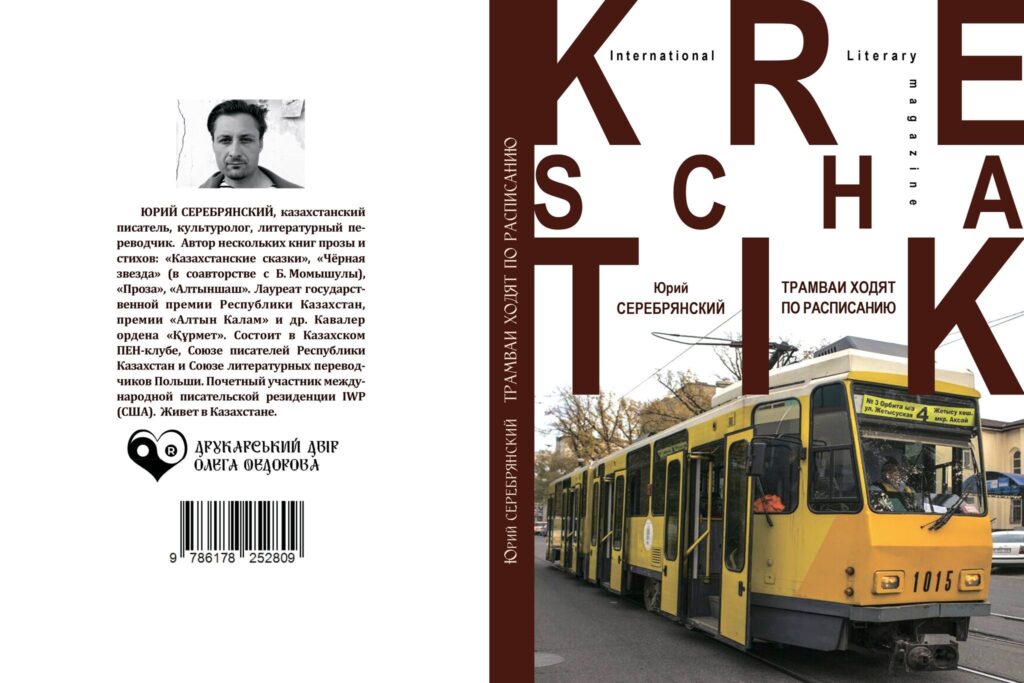
«Trams follow the schedule«, prose collection, «Drukarski dvir Olega Fedorova»/Khreschatik magazine, Kiyev, 2024.
About: Available in Russian.
Read / Buy: Available for free download
Review / Press:
«In his latest collection, Kazakhstani writer Yuriy Serebriansky presents a kaleidoscope of stories that dance on the edge of reality and memory, offering a poignant exploration of post-Soviet identity and the universal human experience.
Serebriansky, winner of the Kazakhstan State Prize, masterfully weaves together themes of memory, identity and the search for belonging in a world that is constantly changing. His prose is characterized by keen observation and psychological depth, capturing the human condition in its most nuanced forms». Dan Sugralinov’s view on “Trams follow the schedule” by Yuriy Serebriansky
Reading and comprehending the new book “Trams follow the schedule” is like meeting an old friend Anastassiya Kiriyenko’s pervasive review on Yuriy Serebriansky’s new book.
«Altynshash», A Novel, Meloman publishing, 2024, Almaty.
About: Altynshash, a new novel by Yuriy Serebriansky focused on the history of Nations deportations to Kazakhstan. Family stories of Pols departed to Kazakhstan since 1935 could be also found in this book. The fragment appeared in Stalinism in Kazakhstan: History, Memory, and Representation (Translation Anton Platonov and Simon Pawley) collection by Lexington Books, 2021.
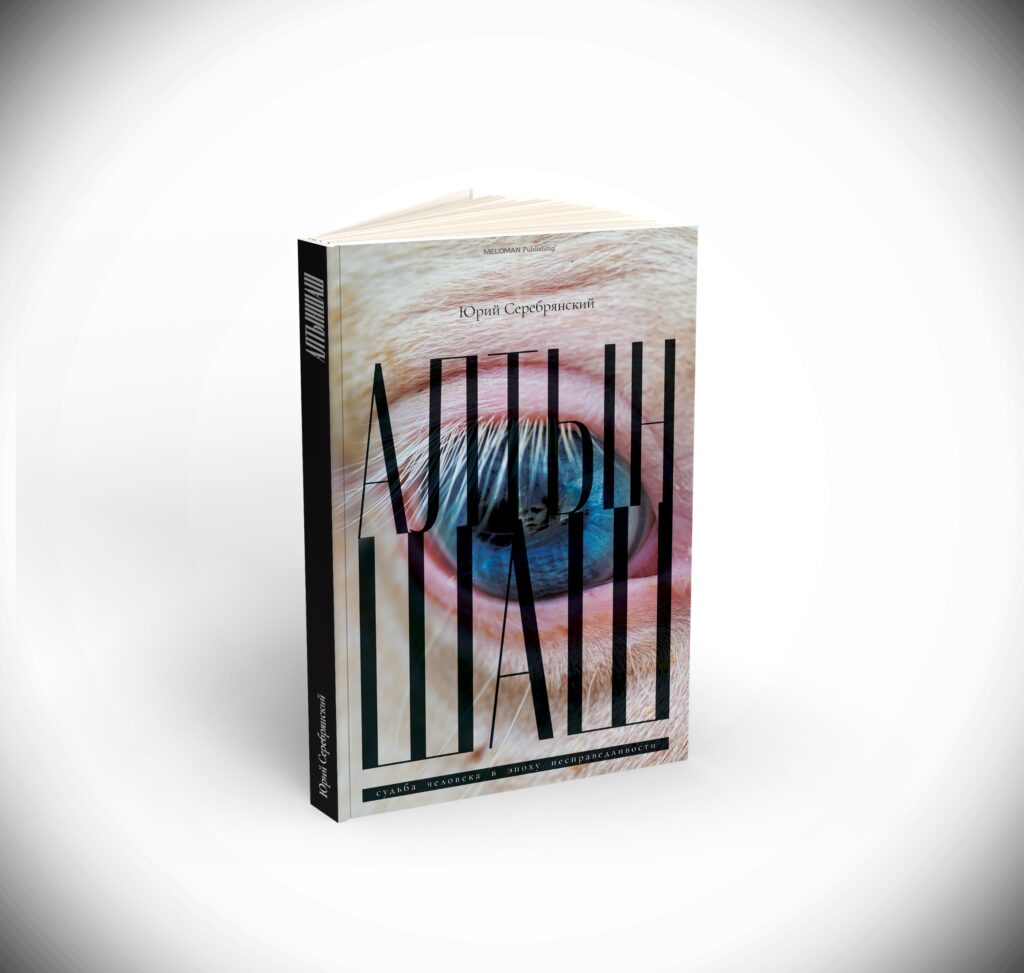
«Buddha«, selected poems collection, Chair Poetry Books, 2024, Kolkata.
About: Buddha, selected poems collection launched in Kolkata 01.12.2024, published by Chair Poetry Books. Translated into English by John Vater, Anton Platonov, Ariadna Linn and Elena Davydova

.